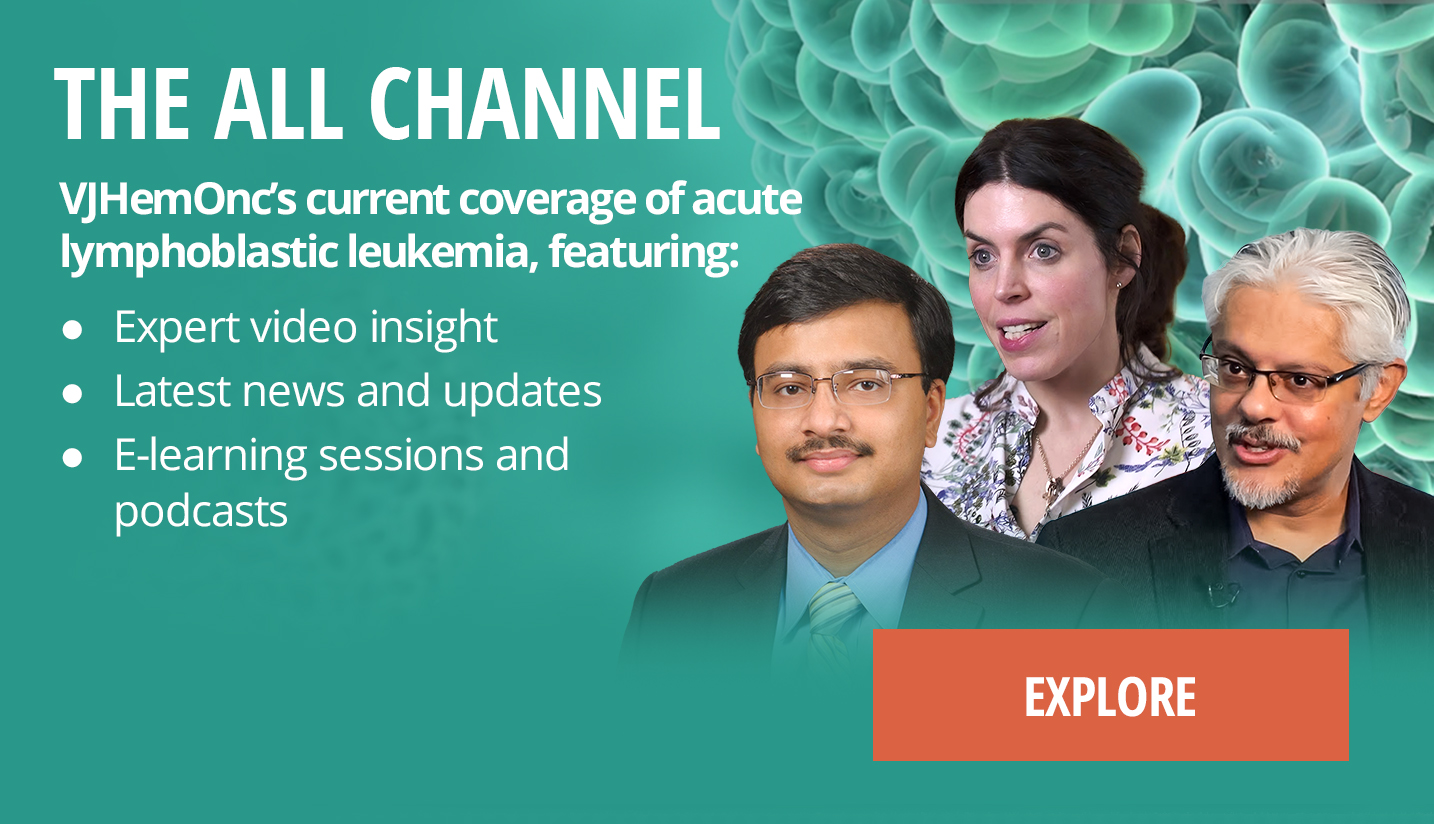Yeah, I think that the key is to try to get experience with these pediatric regimens and to try to adhere to the trials, to the published regimens as closely as possible. With the caveat that young adult patients, as we’ve learned, require special potential modifications that need to be made to dosing and particularly to dosing of asparaginase. And the community physicians should feel free to reach out to people with experience in the field if they’re running into questions or problems in the management of these patients because this is a challenging disease to treat and community physicians often don’t see a lot of ALL...
Yeah, I think that the key is to try to get experience with these pediatric regimens and to try to adhere to the trials, to the published regimens as closely as possible. With the caveat that young adult patients, as we’ve learned, require special potential modifications that need to be made to dosing and particularly to dosing of asparaginase. And the community physicians should feel free to reach out to people with experience in the field if they’re running into questions or problems in the management of these patients because this is a challenging disease to treat and community physicians often don’t see a lot of ALL. It’s a rare disease and therefore to optimize outcomes for the patients it’s appropriate to and perfectly acceptable and desired for them to reach out to people around the world who have experience in these regimens, because it does take, it’s a learning curve. And so it’s important not to feel hesitant about reaching out, I would say.
This transcript is AI-generated. While we strive for accuracy, please verify this copy with the video.














